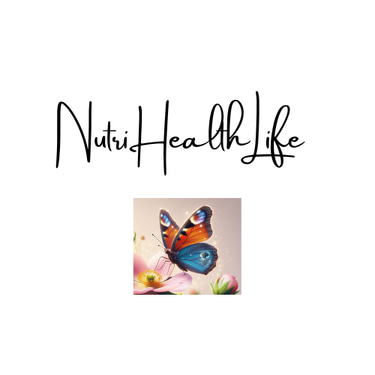
Nutrition and Mental Health: How Food Affects Mood, Anxiety, and Emotional Well-Being
Did you know that your diet plays a major role in your mental health? In this article, discover how certain nutrients and foods can help reduce anxiety, balance your mood, and support emotional well-being. Learn practical tips to feed your brain and feel better from the inside out.


Nutrition and Mental Health:
How Food Affects Mood, Anxiety, and Emotional Well-Being
Is There a Connection Between Food and Emotions?
Yes — and science confirms it! What you eat directly influences your mind and emotions. Today, the gut is known as the "second brain," and most of the body’s serotonin (the “feel-good” hormone) is produced in the intestines.
That means a balanced diet goes far beyond physical health or weight management — it can reduce anxiety, lift your mood, and support long-term emotional well-being.
How Nutrition Impacts the Brain and Mood
Mental health is influenced by various factors, including sleep, environment, genetics, and daily habits. But one often-overlooked pillar is nutrition.
Diets high in processed foods, refined sugars, and unhealthy fats increase inflammation in the body and even in the brain. This can affect the production of neurotransmitters like serotonin, dopamine, and GABA, directly influencing emotional stability.
On the other hand, a diet rich in key nutrients can support brain function and help stabilize your mood naturally.
Foods That Help Reduce Anxiety and Improve Mood
1. Foods Rich in Tryptophan
Tryptophan is an essential amino acid needed to produce serotonin.
📌 Found in: eggs, bananas, oats, tofu, nuts, and pumpkin seeds.
2. Omega-3 Fatty Acids
Crucial for brain health, omega-3s help reduce inflammation and improve neuron communication.
📌 Found in: salmon, sardines, chia seeds, flaxseeds, fish oil.
3. Magnesium-Rich Foods
Magnesium calms the nervous system, supports muscle relaxation, and helps manage anxiety.
📌 Found in: spinach, almonds, avocado, pure cacao.
4. Probiotics and Fiber
Supporting your gut microbiome means supporting your mind.
📌 Found in: natural yogurt, kefir, kombucha, fruits, vegetables, oats.
5. B-Complex Vitamins
Vitamins are vital for brain function, especially B6, B9 (folate), and B12.
📌 Found in: whole grains, eggs, leafy greens, legumes.
What to Avoid to Protect Your Mental Health
Refined sugars and excess sweets
Fast food and highly processed snacks
Excessive alcohol
Too much caffeine (for sensitive individuals)
These foods often lead to energy spikes followed by crashes, which can worsen symptoms of anxiety and emotional imbalance.
Healthy Habits to Complement Nutrition
In addition to eating well, support your mental health with:
✅ Regular physical activity
✅ Quality sleep
✅ Daily sunlight (for vitamin D)
✅ Breathing exercises and mindfulness
✅ Proper hydration
Conclusion: Feed Your Mind With Purpose
Taking care of your mental health begins on your plate. Including mood-supportive foods in your daily routine can reduce anxiety, enhance your mood, and boost your energy naturally.
At NutriHealthlife, we believe that nutrition is a pillar of emotional wellness. Small changes in your eating habits can lead to big shifts in how you feel — from the inside out.


